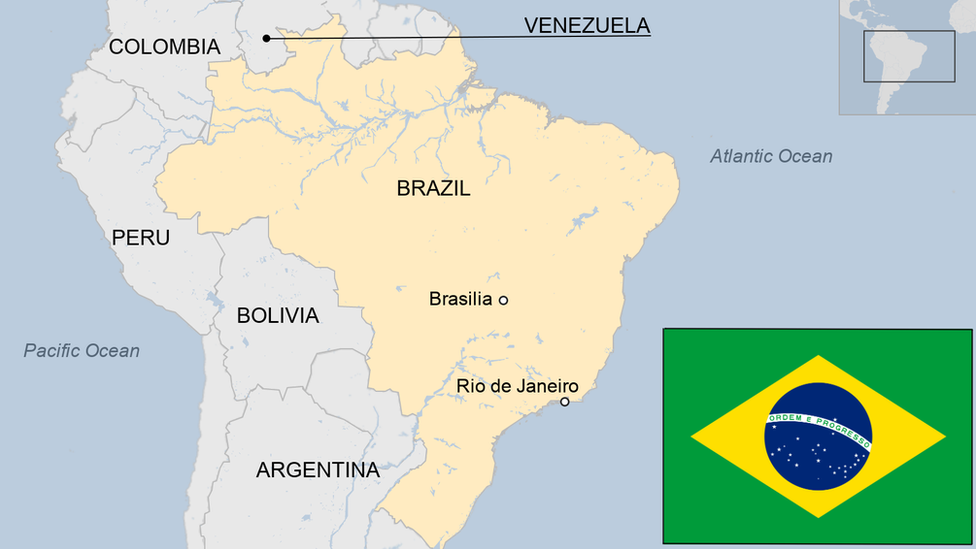French Guiana profile
- Published
This page is no longer being updated. It was last updated on 2 June 2023

Dense equatorial forests, colonial towns and a major space centre are among the faces of French Guiana, a region of France on the north-east coast of South America.
A lack of infrastructure has hindered tourism as much of the sparsely-inhabited interior is accessible only by river.
France occupied the territory in the 17th Century. The Dutch and Spanish also settled the area. Until the 1930s, France dispatched convicts to penal colonies there, including the notorious Devil's Island. Another former penal settlement, Kourou, is home to a European Space Agency rocket launch site, accounting for a significant slice of GDP and lending strategic value.
The ethnically-diverse population enjoys one of the higher standards of living in the continent, propped up by the French social security system and subsidies.
Street violence in the 1990s, fuelled partly by high youth unemployment, was seen as manifestations of tension with Paris. However, voters rejected the option of increased autonomy in a 2010 referendum.
One issue affecting the region has been the influx of illegal immigrants and clandestine gold prospectors from Brazil and Suriname.
Read more country profiles, external - Profiles by BBC Monitoring, external
FRENCH GUIANA: FACTS
Capital: Cayenne
Area: 83,846 sq km
Population: 294,400
Languages: French, Guianese Creole French, also Wayampi, Carib, Emerillon
Life expectancy: 72 years (men) 80 years (women)
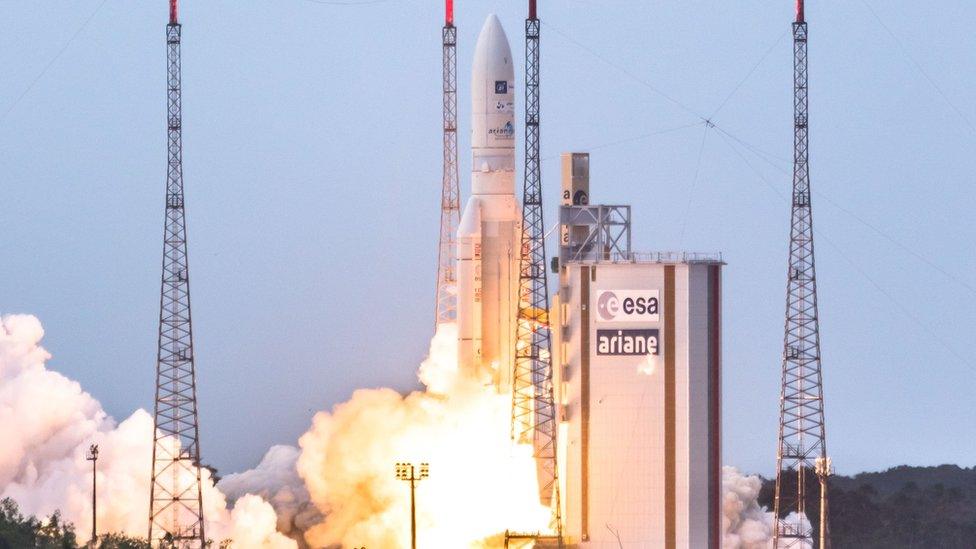
An Ariane V rocket lifts off from the European spaceport in Kourou
LEADER
Head of state: President of France
An appointed prefect represents the French government in Paris. The territory sends elected representatives to the French National Assembly and to the Senate.
Since December 2015, French Guiana has been ruled by a single assembly within the framework of the French Guiana Territorial Collectivity. This assembly, the French Guiana Assembly or Assemblée de Guyane, has replaced the former regional council and departmental council.
MEDIA
Commercial broadcasters operate alongside services provided by public broadcaster Reseau France Outre-mer (RFO).
TIMELINE
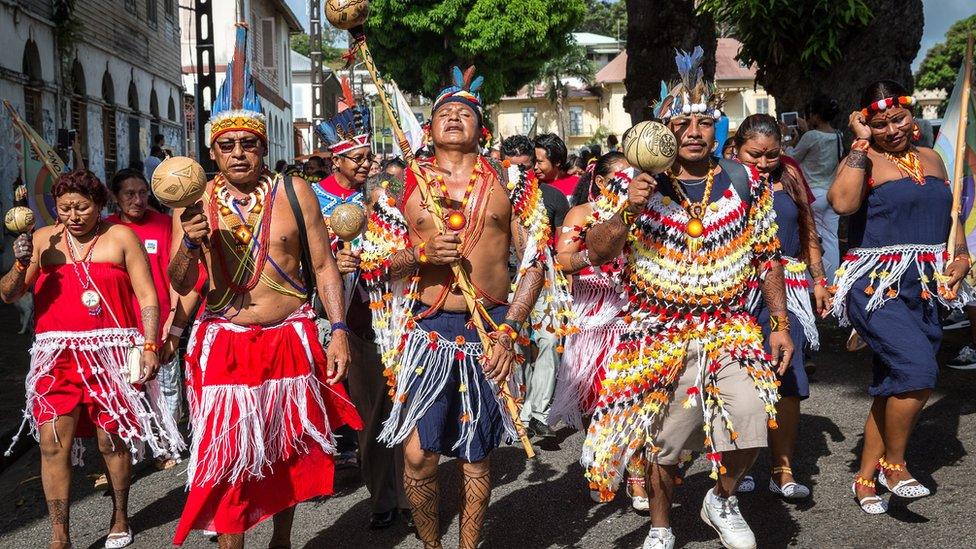
Representatives of various indigenous peoples take part in a march in the capital Cayenne
Some key dates in French Guiana's history:
1608 - Grand Duchy of Tuscany sends an expedition to establish an Italian colony but this is halted following the death of Tuscany's grand duke, Ferdinando I de' Medici.
1624 - French initial attempts at colonisation are abandoned in the face of pressure from Portugal, which sees it as a violation of the 1494 Treaty of Tordesillas.
1643 - French settlers establish a settlement at Cayenne, later abandoned in the face of attacks by indigenous peoples.
1664 - French renew their colonisation.
18th/19th Centuries - Slaves are transported from Africa to work producing sugar and Cayenne pepper.
1809 - An Anglo-Portuguese naval squadron seizes French Guiana. The territory is returned to France at the end of the Napoleonic wars.
1848 - France abolishes slavery; the ex-slaves, subsequently called maroons, form settlements that act as buffer between European settlements along the coast and main rivers) and Native Americans inland.
c.1850 - Indians, Malays and Chinese are brought to the colony.
1852 - First shiploads of convicts arrive from France.
1885 - France passes a law that says anybody with more than three sentences for theft of more than three months each, will be transported to French Guiana.
The Iles du Salut is used to house political prisoners, and become notorious for the brutality of life there, centring on Devil's Island
1895 - Alfred Dreyfus, external becomes Devil's Island's most famous prisoner. A French artillery officer of Jewish ancestry. His conviction on treason charges is one of the most polarizing political events in modern French history. Dreyfus is finally completely exonerated in 1906.
1946 - French Guiana becomes an overseas department of France.
1951 - The infamous penal colonies, including Devil's Island are formally closed.
1968 - The Guiana Space Centre opens at Kourou. It is chosen as the site for rocket launches largely due to its location near the equator.
2017 - French Guiana sees a series of sometimes violent protests and strikes led by the "Collective of 500 Brothers" to highlight social and economic inequalities. They end when Paris authorizes up to 2.1bn euros in emergency relief.
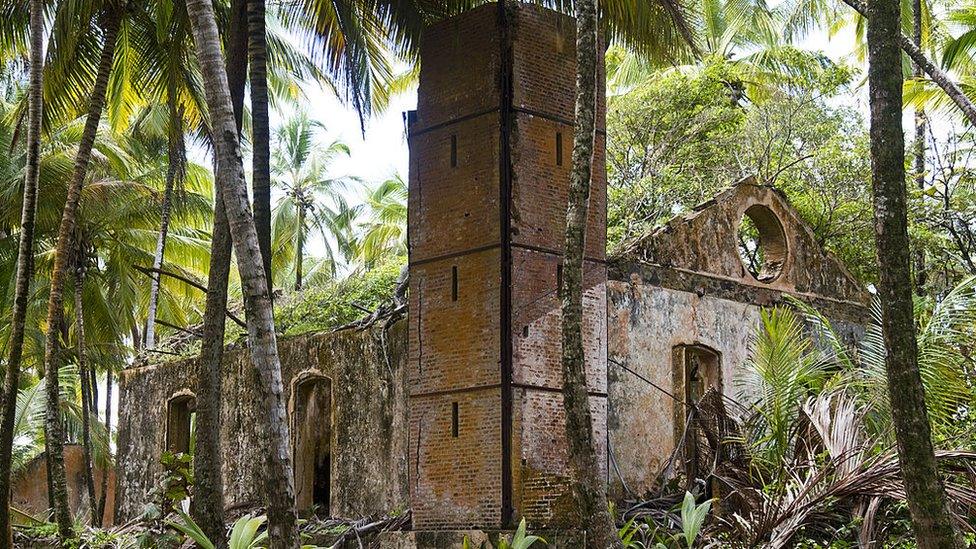
The ruins of the Devil's Island penal colony. France sent its political prisoners and criminals here. Few made it home again
Related topics
- Published9 September 2024
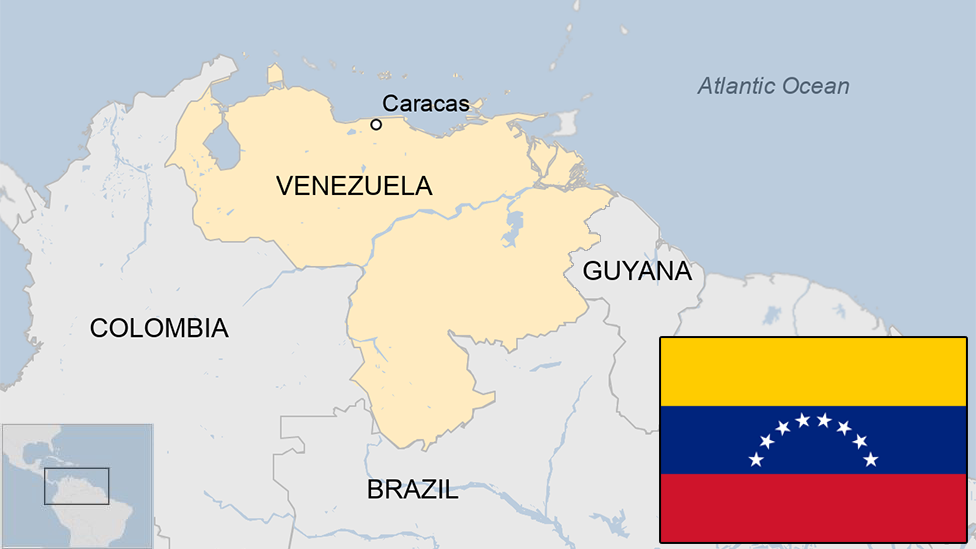
- Published24 April 2023
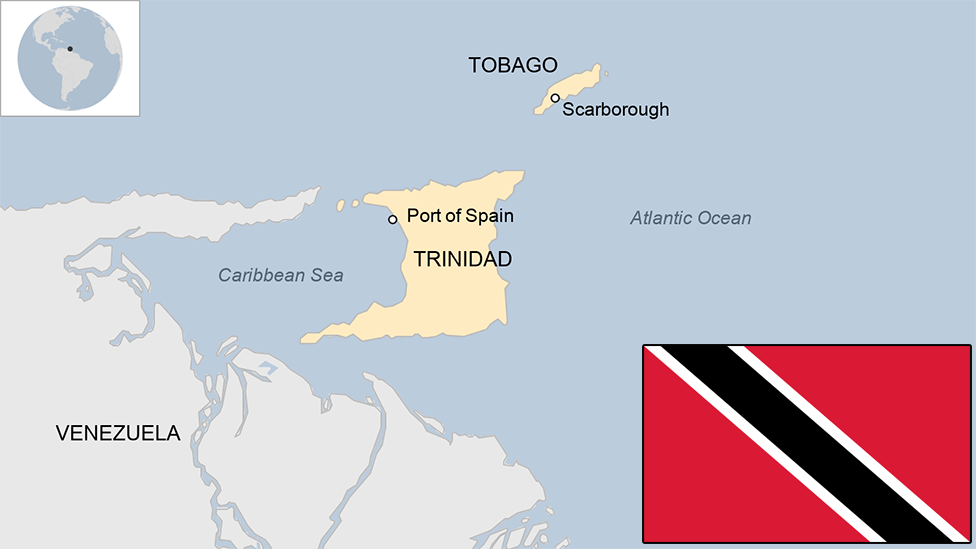
- Published11 December 2023
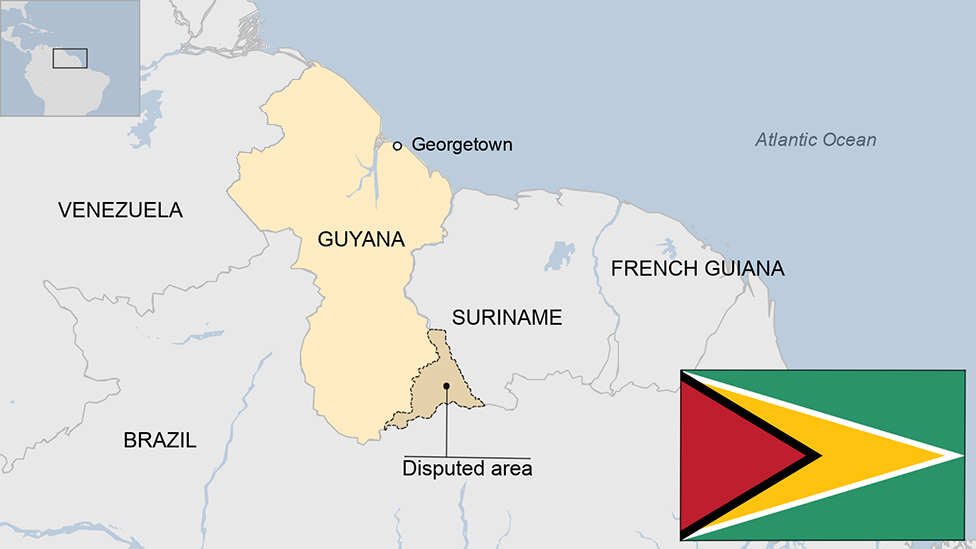
- Published13 November 2023
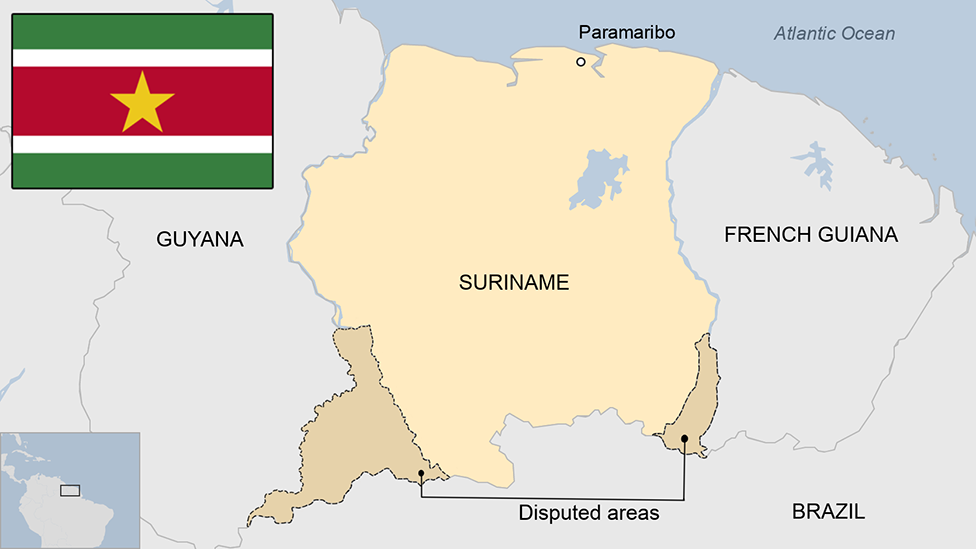
- Published2 June 2023
